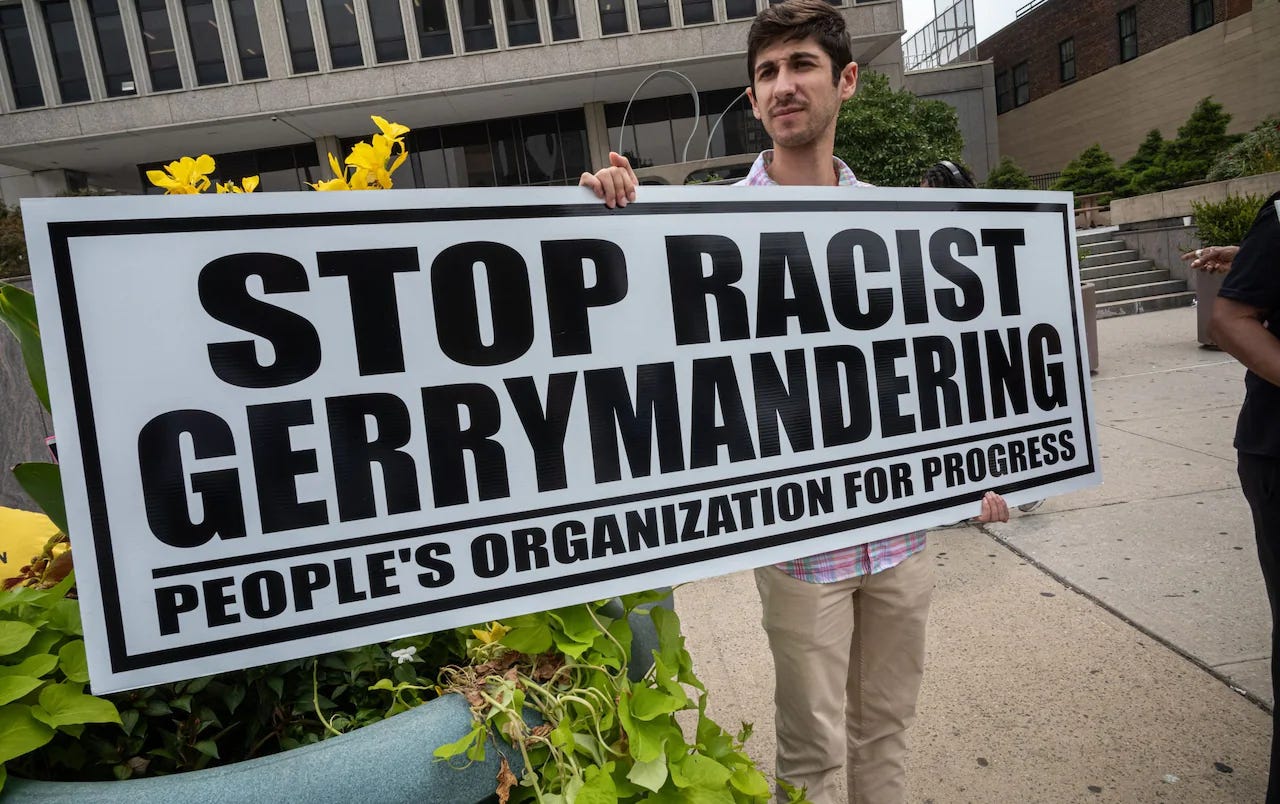Will the Supreme Court End Racial Gerrymandering?
Racial gerrymandering of electoral districts benefits a few Democrat politicians, not minority voters. The Supreme Court should strike it down.
With the President meeting Putin today, be sure to read Wednesday’s “Daddy’s Home: Trump’s ‘Transactional’ Foreign Policy Is Anything But Retreat”.
by Michael Lind
August 15, 2025
Is the U.S. Supreme Court about to disenfranchise black Americans and other racial minority voters?
You would think so, given the hysterical hyperbole found in the progressive press. In the New York Times, Jamelle Bouie claims that the Supreme Court is seeking to make the Voting Rights Act of 1965 — legislation that prohibits racial discrimination in the electoral process — “an artifact of the past”.
“The Supreme Court Prepares to End Voting Rights As We Know Them,” shrieks the headline in the Left-wing journal Mother Jones.
“Sixty years ago, the Voting Rights Act ended the Jim Crow regime and transformed the country, finally, into a multiracial democracy — albeit an imperfect one,” the Mother Jones article reads. “But, with the court’s quiet announcement it would return to a paused case, the justices are now preparing to take us back to a time when elected officials at all levels of government were white, and the rights of minorities were trampled.”
Is the Republican majority on the Supreme Court really about to strike down or eviscerate the Voting Rights Act of 1965? Will the Court legalize the outlawed methods used by Southern segregationists to deny the right to vote to black Americans, like literacy tests and poll taxes?
Of course not. The occasion of these alarms is the willingness of the Court to consider a Louisiana case — Louisiana v Callais — involving the use of race by state legislatures in drawing congressional districts.
What is at issue is the question of whether the half-century-old practice of racial gerrymandering — drawing congressional districts in such a way as to elect representatives of a particular race to the House of Representatives — is compatible with the U.S. Constitution, or even the Voting Rights Act itself.




